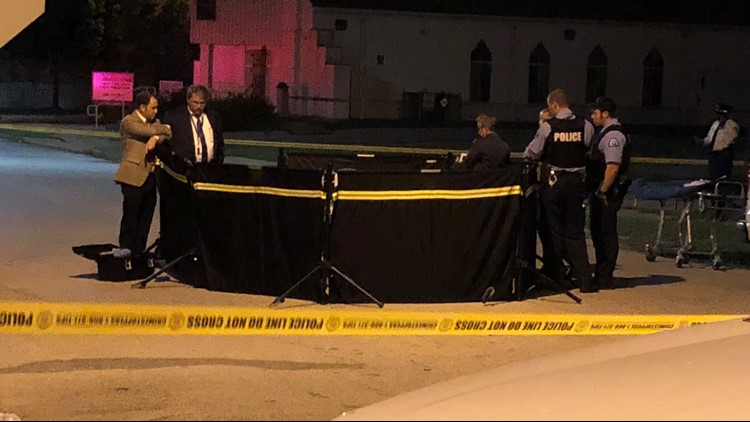ST. LOUIS —
St. Louis is near the top of another unflattering list. This time, we're one of the cities that struggles to find solutions, for domestic violence.
Here's the good news, there are initiatives that are proven to work.
The Washington Post found nearly half of all women who are homicide victims die at the hands of a former or current partner. The paper picked St. Louis as a place that needs to make progress with this issue.
We spoke to a survivor who said things are gradually getting better.
"It takes the average woman seven times to leave, it took me… probably eight," said Michelle Roberts, a domestic violence survivor.
Roberts admits, she could have very easily been a homicide statistic. She specifically remembers the moment she knew she had to get out of the relationship.
"When I was given my engagement ring, within a few weeks of that, my finger was broken when it was torn off," said Roberts.
In 2009, she found herself in an emotionally and physically abusive relationship — and yet like so many in her shoes — doubted whether or not she was a victim. Then she took a lethality assessment on her relationship.
"Here I’m thinking well I may or may not be a real victim and my score was a nine out of 10 so I went and got a restraining order," said Roberts.
Katie Zezima with the Washington Post said that isn't always enough.
"They’re told to file a restraining order, it’s the most basic step they’re told to take," said Zezima.
The numbers she compiled are staggering.
The Washington Post found, by compiling numbers from 47 major U.S. cities, 46 percent of women murdered in the past decade were killed by a current or former partner.
Of those cases, 36 percent of the men implicated in a domestic killing had a previous restraining order.
St. Louis is actually above the national average, at 37 percent of men implicated in a domestic killing had a previous restraining order.
"Really, the only way they can be enforced is if they’re violated. And oftentimes if they are violated, it can be a case of fatal violence," said Zezima.
Katie tells 5 On Your Side, St. Louis is several years behind when it comes to initiatives to drive these numbers down, but they have started in the right direction.
Just this year, the Missouri Legislature approved a fatality review team for St. Louis.
"Look at where there were points of contact with the system in trying to figure out what went wrong and how to prevent that in future cases," said Zezima.
Remember that lethality assessment that Michelle took on her own? The St. Louis Police Department is now making that part of their protocol.
"Each question is weighted so the higher the victim’s score is, the more danger the victim is in so what they do then is directly connect them with services that help them get shelter or help them file a restraining order," said Zezima.
Michelle credits an understanding Judge on her restraining order, and close friends, for why she didn't become a statistic.
"All the people who believed me and just offered that little extra bit of support," said Roberts.
She's now dedicated for her life as the Executive Director of Bravery, to make sure other women are as lucky as her.
"You don’t want to live your life as a victim," said Roberts.



